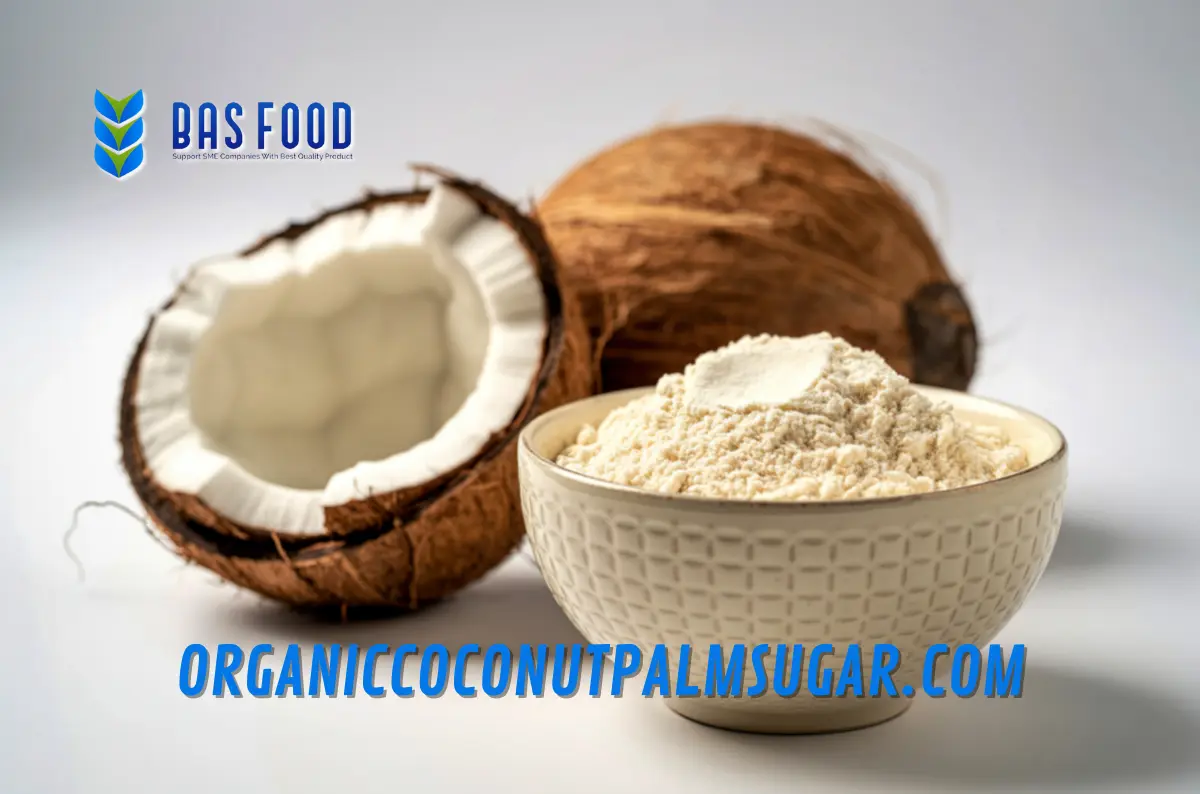Coco flour has become increasingly popular in kitchens around the world. But many people still ask, what is coconut flour exactly? Simply put, coco flour is a fine, soft flour made from dried coconut meat. Unlike traditional wheat flour, it offers a gluten-free alternative, making it a favorite among those following gluten-free, paleo, or keto diets.
The flour meaning extends beyond its gluten-free label. It’s a versatile ingredient that adds subtle coconut flavor to both sweet and savory recipes. Plus, it’s highly absorbent, which means you usually need less of it compared to regular flour. For those curious about its origins, coconut powder from meat is the base—after extracting coconut milk or oil, the leftover meat is dried and ground into this nutritious flour.
Trusted suppliers, like CV Bonafide Anugerah Sentosa, provide high-quality coco flour, sourcing directly from fresh coconuts in Indonesia. Their commitment ensures consistency, safety, and premium quality for both culinary and industrial uses.

How Coconut Flour Is Made
The process of making coconut flour begins with fresh coconut meat. First, the meat is carefully separated from the shell. Then, it’s typically processed to extract coconut milk or oil, leaving behind a fibrous residue. This residue is dried at controlled temperatures to remove moisture without affecting the natural nutrients.
Once dried, the meat is finely ground into a soft powder—what we know as coco flour. This process ensures the flour retains high fiber content, moderate protein, and natural coconut flavor. Interestingly, the same process can yield coconut powder from meat, which is slightly coarser and often used in smoothies or as a supplement ingredient.
CV Bonafide Anugerah Sentosa specializes in producing both high-quality flour and coconut powder from meat. Their meticulous processing ensures that clients receive a pure, consistent product suitable for baking, cooking, and industrial applications.
Nutritional Benefits of Coconut Flour
Coconut flour is not just a substitute for wheat flour—it’s a nutritional powerhouse. It’s rich in dietary fiber, which supports digestive health and helps maintain steady blood sugar levels. In fact, one tablespoon of flour contains around 2 grams of fiber, significantly higher than traditional flour.
Beyond fiber, flour provides protein and healthy fats while being low in carbohydrates. This combination makes it ideal for people on low-carb diets. It’s also naturally gluten-free, which is a key benefit for those with celiac disease or gluten sensitivities. When you choose suppliers like CV Bonafide Anugerah Sentosa, you get coco flour that preserves these health benefits thanks to careful sourcing and production.
Culinary Uses of Coconut Flour
Coconut flour can be used in a variety of recipes, from baked goods to savory dishes. Its high absorbency requires adjustments in liquid ingredients—usually, recipes call for more eggs or liquid to achieve the desired texture. Cakes, muffins, pancakes, and bread can all benefit from the subtle coconut taste.
Interestingly, coco flour isn’t limited to baking. You can use it to thicken soups or stews, or even as a breading for frying. This versatility has made it a kitchen staple for health-conscious cooks. Using flour from trusted sources like CV Bonafide Anugerah Sentosa ensures consistent results, as their products maintain uniform texture and quality across batches.
Coconut Flour vs. Other Flours
Compared to wheat flour, coconut flour is more absorbent, richer in fiber, and lower in carbohydrates. Unlike almond flour or rice flour, coco flour imparts a unique coconut flavor that enhances recipes naturally. While it may require recipe adjustments, the nutritional advantages often outweigh the extra effort.
Flour also differs from coconut powder from meat, which can be used as a supplement rather than a direct flour replacement. Coco flour’s fine texture makes it ideal for baking, while coconut powder can be added to smoothies, protein shakes, or mixed into cereals. Choosing the right product depends on your culinary goals and nutritional needs.
How to Store and Use Coconut Flour
Proper storage is crucial for maintaining the quality of coconut flour. Keep it in an airtight container, away from moisture and heat, to prevent spoilage. Stored correctly, flour can last up to a year, making it convenient for both home kitchens and commercial use.
When baking, start by replacing a portion of regular flour with coco flour, and adjust liquids accordingly. Since it’s highly absorbent, recipes often call for smaller amounts than you might expect. For bulk use, sourcing from trusted suppliers like CV Bonafide Anugerah Sentosa guarantees consistent texture, flavor, and shelf life, whether for commercial baking or culinary innovation.
Choosing a Trusted Coconut Flour Supplier
Not all coconut flour is created equal. High-quality flour depends on the source of the coconut, the processing method, and strict quality control standards. A reputable supplier ensures that the flour is free from contaminants and consistently fine in texture.
CV Bonafide Anugerah Sentosa has built a strong reputation as a trusted coconut supplier and spices provider. By sourcing fresh coconuts from Indonesia and maintaining rigorous processing standards, they deliver products suitable for global markets. Whether you’re a small bakery or a large food manufacturer, working with a reliable supplier ensures your recipes consistently shine.
Conclusion: Why Coconut Flour Deserves a Place in Your Kitchen
Coconut flour is more than just a gluten-free alternative—it’s a nutritious, versatile, and flavorful ingredient. Understanding what is flour, its benefits, and its uses helps you make informed culinary choices. From baking delicious treats to thickening sauces, coco flour can enhance both taste and nutrition.
By choosing high-quality flour from trusted suppliers like CV Bonafide Anugerah Sentosa, you’re ensuring reliability, consistency, and premium quality in every batch. Whether for personal use or commercial production, flour offers endless possibilities for creative cooking and healthy eating.
Contact CV Bonafide Anugerah Sentosa how we can provide the best solutions for you. WhatsApp: +62 8213 4505 737, Email: info@bonafideanugerahsentosa.com / bas.mdir@gmail.com.

